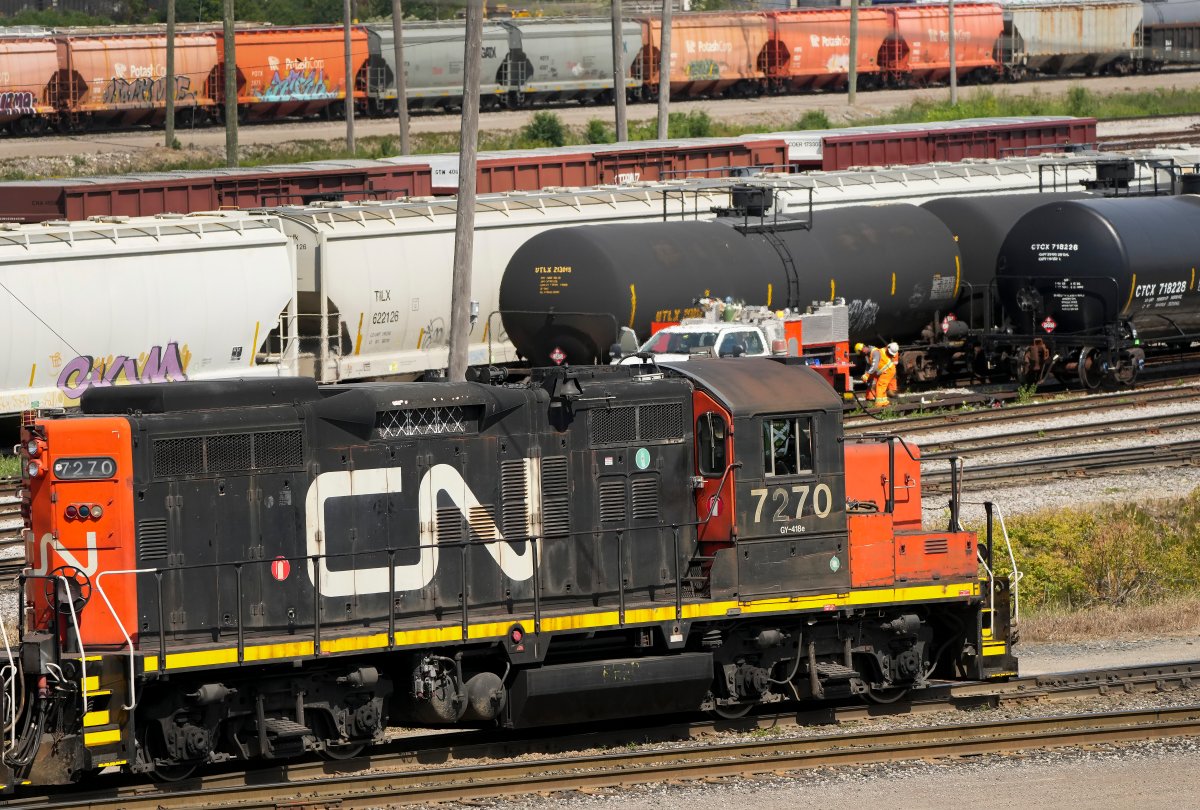CN Rail’s entire Indigenous advisory board handed in its resignation Monday saying continuing the work would “mislead Indigenous Peoples as to CN’s sincerity and authenticity to reconcile.”

The statement, penned by the council’s co-chairs Murray Sinclair, former senator and commissioner of the Truth and Reconciliation Commission, and Roberta Jamieson, the first female First Nations lawyer in Canada urged the organization to make fundamental changes to the way it does business.
In an interview with Global News, Sinclair said the intent of the council was to assist them to develop their reconciliation action plan as a meaningful way forward, but after that was done, the company failed to use the council’s input.
“This decision was not taken lightly,” said Jamieson. “But we really came to the conclusion that one of the fundamental recommendations we had made was really not going to be acknowledged or accepted by CN.”
“And that’s an apology framework and an acknowledgment of the role of railway had in damaging the relationship with Indigenous peoples.“


Get daily National news
Moments before Global News’ interview with Sinclair and Jamieson, CN sent out a release saying they published a formal acknowledgement of the historical role railways played as “instruments of colonial policies” but for Sinclair and Jamieson, it was too little, too late.
“Without having seen the nature of the statement that they’re making, the conversation that we had about that very issue was not acceptable to the members of council and so members of council unanimously agreed to step down,” said Sinclair.
In the same statement, CN said it’s committed to its journey towards reconciliation and thanked the council for all its work.
“Systemic changes require commitment and competency and Indigenous people with lived experiences provide an invaluable and essential perspective in leading that change. We are grateful for the IAC’s perspective” the statement read.

Historians have said the building of Canada’s railways often meant land dispossession and starvation for Indigenous people.
James Daschuk said in his book Clearing the Plains that trains brought settlers and were a “fatal disease vector.” Gord Hill, a Kwakwakwa’wakw artist and activist, describes trains as “engines of colonization” in The 500 Years of Resistance Comic Book.
In the late 1800s, almost 5,000 Indigenous people were removed from the Cypress Hills in Saskatchewan by withholding food rations to make room for the Canadian Pacific Railway. And in 2016, Fort William First Nation in Ontario settled a land claim stemming from a historic relocation to build the Grand Trunk Railway.

The 104-year-old company has “missed the mark” on reconciliation according to Sinclair and Jamieson. In order to have a better relationship with Indigenous people, they say they must accept its past, take action and commit to change led by Indigenous people.
“There’s something to be said for the bar being a higher one for companies like railway companies, beyond other corporations who might be publishing reconciliation action plans,” said Jamieson.
“Now, why is that? When the railways were built, they were built as a result of dispossessing Indigenous people of their lands and many of our people associate railway with separation, taking their children to residential schools. These are very real imprints that remain on our people today.
“So, while railway companies continue to reap the benefits of that history while our people continue to reap the loss. And I think that is a very key point to keep in mind. It’s one thing to acknowledge colonialism; it’s another to embrace your role in it, whether it was then or now.”
— With files from Jamin Mike, Canadian Press.
Looking for more Indigenous news? Find our stories here.





Comments